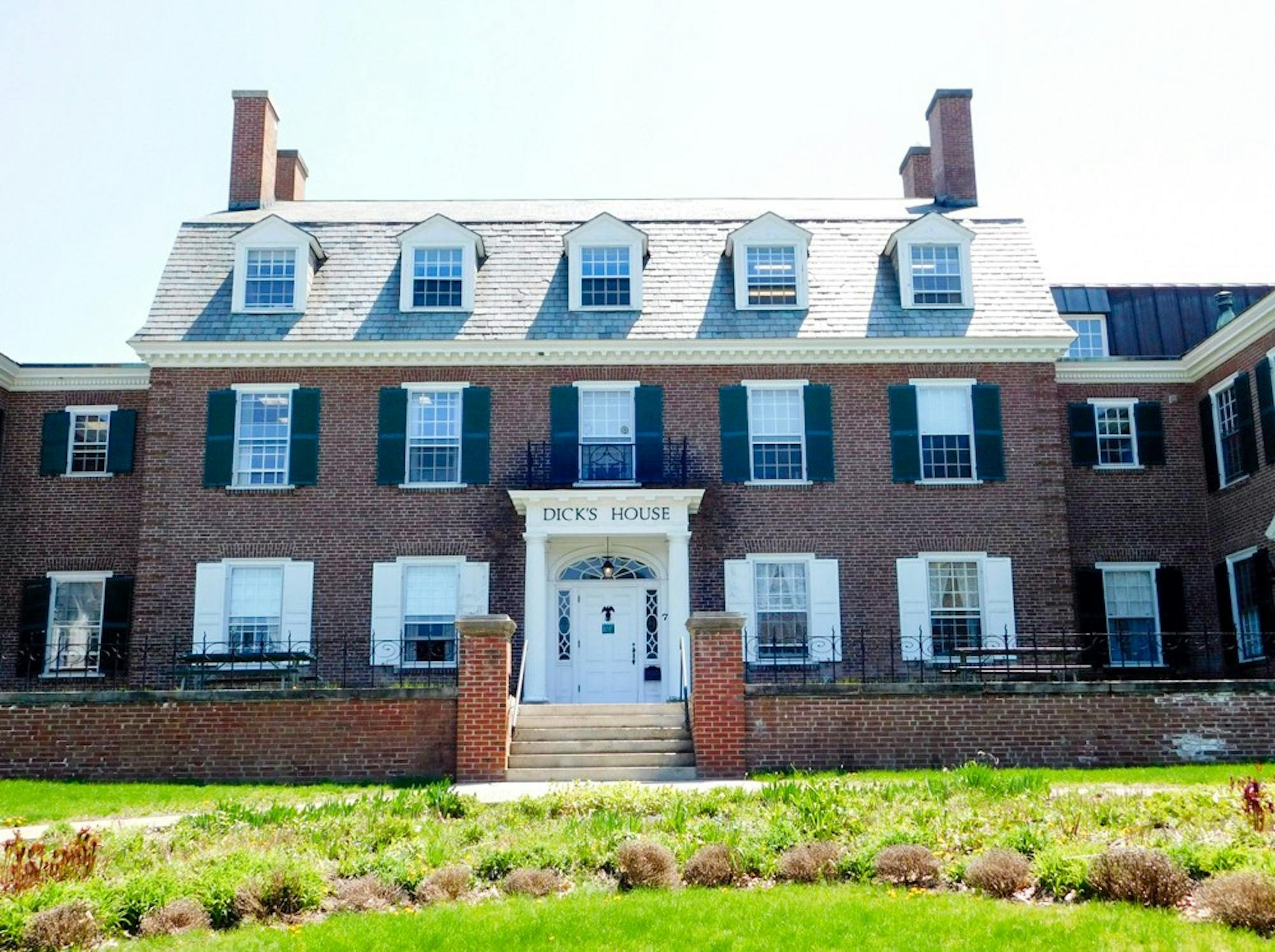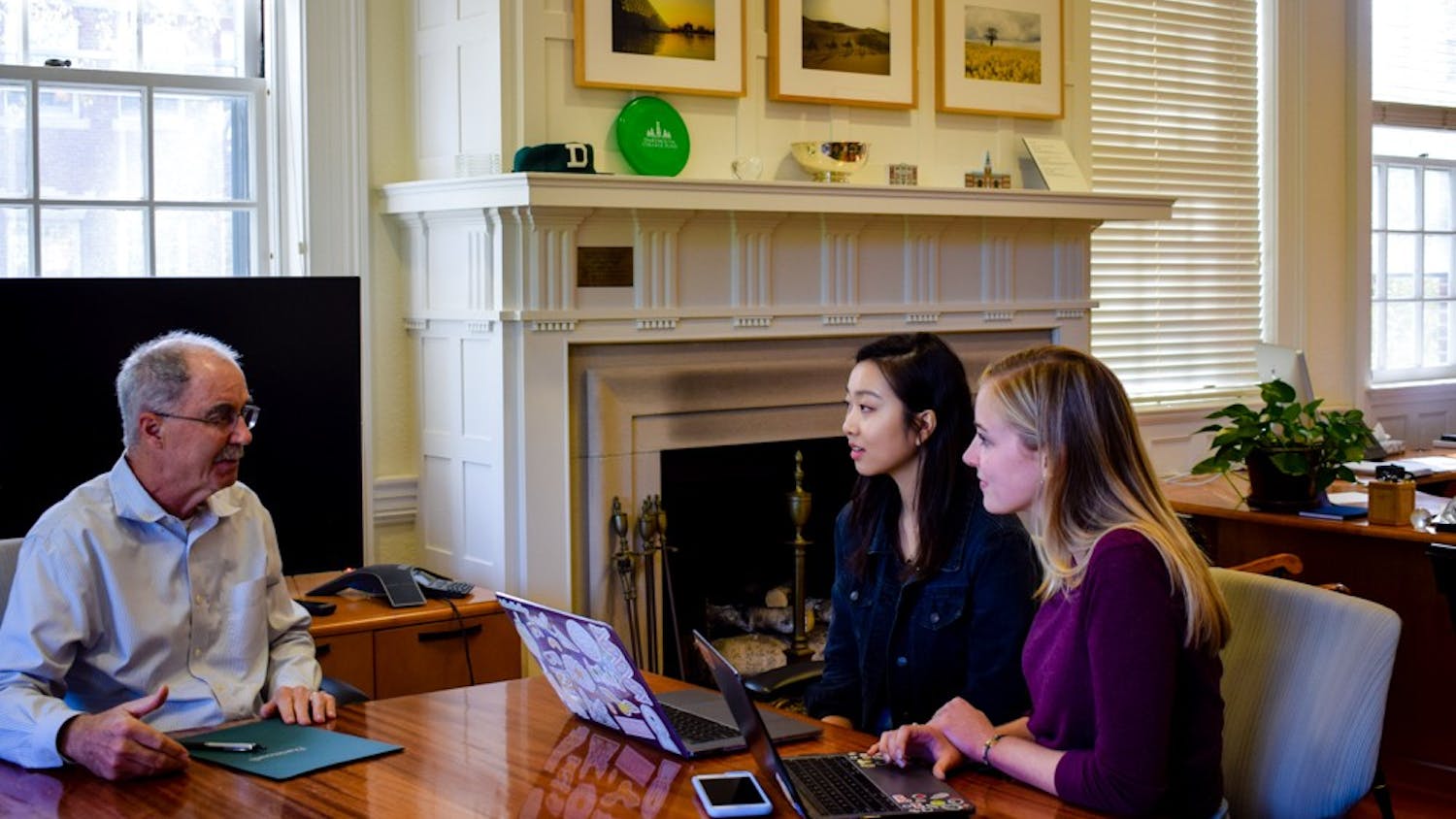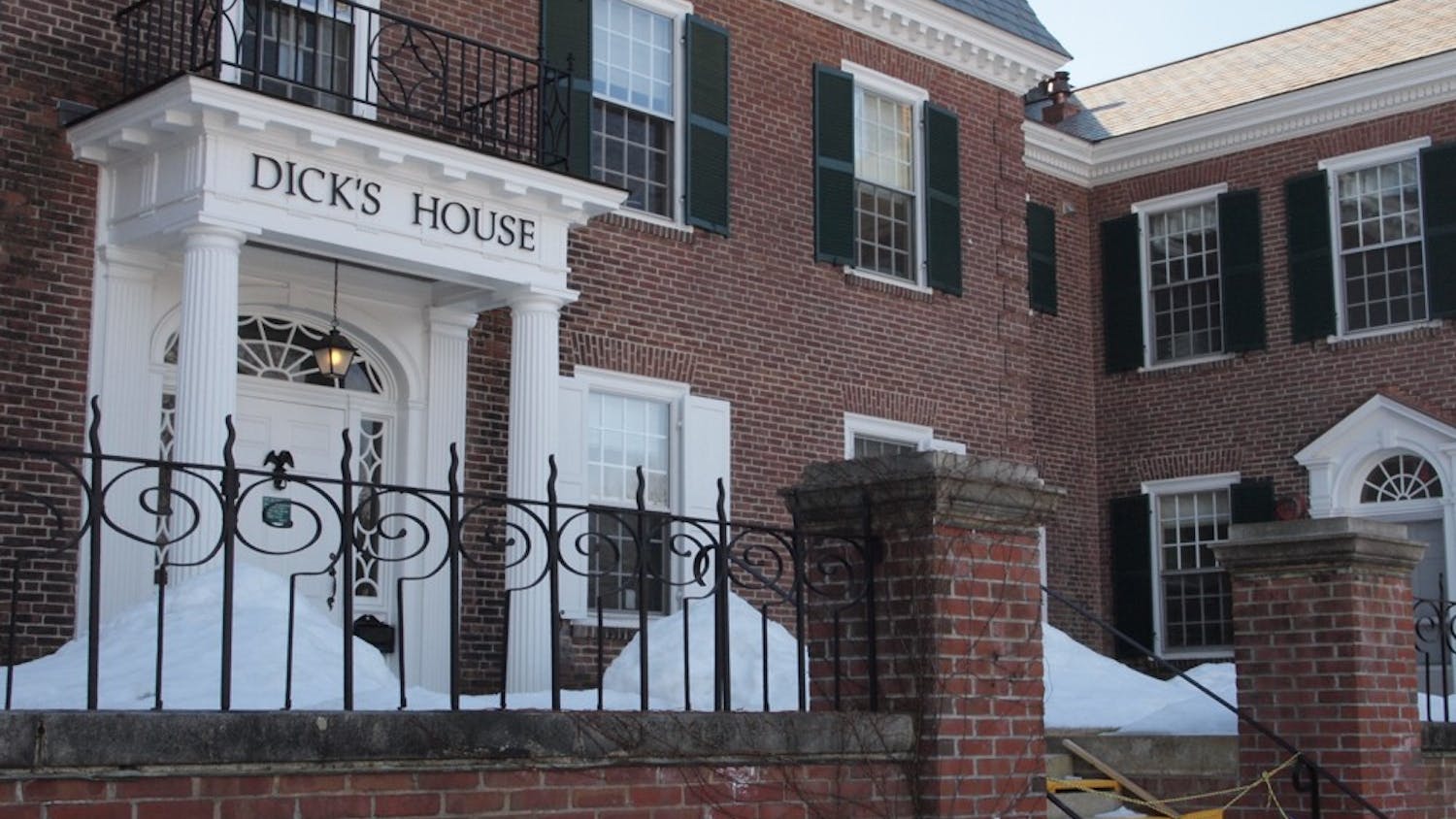This article is featured in the 2019 Homecoming special issue.
At any given time of the academic year, 25 to 28 percent of the Dartmouth student body are being served by the Counseling Center at Dick’s House, according to Heather Earle, director of the Counseling Center. Students’ demand for mental health services increase with each week that passes in a term, and peaks in October and May, with the settling-in of freshmen in the fall and the departure of seniors in the spring, Earle said.
The core mental health resource at Dartmouth is the Counseling Center at Dick’s House, but there are multiple groups such as the Student Wellness Center, the Tucker Center, and short-term workshops centered around common issues such as anxiety and stress management as well.
Reaching out to a stranger who may not understand the Dartmouth experience can exacerbate students’ feelings of not being understood or supported. That is why Amanda Chen ’21 said she decided to found the Dartmouth Mental Health Student Union, a group of students devoted to reducing stigma, increasing awareness in mental health services on campus and mental health issues. The Dartmouth Mental Health Student Union currently has around 30 active members and recently hosted a launch party for the peer-support program, Late Night Solace, which had a turn-out of nearly 100 people, according to Chen.
“I think the benefit when you meet with a peer is just that you don’t have to explain the Dartmouth experience to them,” Chen said. “I actually use Late Night Solace myself quite often. If I tell a peer I’m stressed out, they already have an idea of why, whether it’s because of the quarter system, the D-Plan, the second round of midterms, the pressures felt from rush and the Greek system. It’s really nice to have a time where I can focus on me and have someone else there to just listen.”
Over the past years, Dartmouth has altered its approach to mental health issues, acknowledging how different the healing process can be for students based on their background.
The first step in the Dick’s House counseling process for students seeking support is a triage appointment, which is a 30-minute meeting with a clinician from the Counseling Center. During a triage appointment, students discuss their reason for seeking help, their goals and other preferences. Some students share a preference for a counselor of a certain gender, some request a shared racial or ethnic identity, Earle said.
Similarly, Chen said her organization emphasizes inclusivity and diversity.
“We recognize that mental health can affect people in so many different ways, depending on their personal background and cultural experiences,” Chen said.
With all these factors considered, counselors at Dick’s House guide students toward their next step, which can include several options.
“That might be seeing a clinician here short-term, referral to one of our groups, referral to one of our workshops, referral to the community, a single session, or we may decide our services are not needed,” Earle said.
The Counseling Center typically deals with students with short-term issues, so if a counselor decides a student needs long-term care, the student may be referred to external community providers. Many students find this process frustrating due to financial struggles, time constraints or not having access to a car, according to Earle. If a student is found to be a good candidate for short-term counseling, the most important thing is making sure the student and their counselor are a good match and have a shared connection.
Earle said that for many students, the frustration with mental health services at Dartmouth comes from unfamiliarity with the resources available. In surveys collected anonymously by the Counseling Center, students who have actually utilized their services reported overwhelming satisfaction. However, Earle said she understands students’ frustrations with the limits of mental health services.
“What students would like, as well as what I would like, is to be able to give all students as much counseling as they want,” Earle said. “Sadly, that’s something we are not equipped to do, as we see both undergraduate and graduate students. However, the issue with the student-to-counselor ratio is that this is a problem we can’t really buy ourselves out of.”
Chen and Earle both hypothesized that students are deterred from seeking help because they feel that their problems are not ‘serious enough,’ fear the stigma attached to therapy and counseling, or are unsure about the costs and confidentiality policies involved.
Paola Karapataki ’22 said that many Dartmouth students feel uneasy about speaking to a stranger about their issues and would rather speak to someone close in age or someone trustworthy, like a friend.
“I definitely go to my mom, close friends from home or my priest first to talk about problems that are more long-term, such as health problems or family issues,” Karapataki said. “It would have to be a really serious issue for me to go to a counselor because I find it hard to take advice from someone who doesn’t really know me. Most students don’t know about many resources beyond the Counseling Center, and a lot of people don’t know that it’s a free resource.”
Earle said that services offered by the Counseling Center are strictly confidential, with the exception of vague details included in release forms and if a student presents an imminent threat to his or her own safety or another person’s safety. Additionally, students are not charged for services in the Counseling Center and insurance options are discussed thoroughly if a student is referred to see someone in the community.
“Counseling is great, but many students think, ‘You and I haven’t really met before, but I have to spill all my life problems to you,’” Earle said. “It can be intimidating and scary, so we wait at least a week to give students time to decide if they want to actually continue with counseling after triage.”
Beyond Dartmouth, limited mental health resources affect the rural communities of Upper Valley as well. For example, Upper Valley Haven, a nonprofit, private organization that serves people from Vermont and New Hampshire who struggle with issues of poverty and homelessness. The issue of homelessness is not as obvious in a non-urban setting. A lot of people struggling with these issues require redirection due to challenges with mental health said Becky Hadley, the Adult Programs Clinical Supervisor at Upper Valley Haven.
“We provide a lot of resources, but also work closely with a lot of partnering agencies so there’s a lot of collaboration that goes on in supporting folks,” Hadley said. “In the more rural areas, people aren’t on the streets panhandling but they are couch-surfing, sleeping in a car or camp. There isn’t always an awareness that this is an issue in our community and the shelter resources are kind of spread out throughout the state. In our neighboring area, the Haven is the shelter.”
Dartmouth’s setting in rural New Hampshire further present additional challenges. For example, there are not many community providers that are open to new patients or that accept insurance. In cities, on the other hand, there are usually more providers, low-fee agencies and training programs available, Earle said.
Chen attended the 2019 Ivy League Mental Health Conference this past spring in which mental health services across campuses were compared.
“Being in a rural setting is really hard, because if you don’t want to use school services, there aren’t that many services available around you,” Chen said. “For example, people at Harvard talked about having the ability to try multiple psychiatrists within walking distance of each other, which is unbelievable for us in Hanover.”
A lot of the exciting Dartmouth-specific experiences the College prides itself on present burdens for students. For example, the D-Plan is offers students diverse travel and professional opportunities, through FSPs, LSAs and more, but it also makes it difficult to maintain relationships, Earle said.
Although anxiety does not appear at significantly higher rates at Dartmouth than other campuses, the intensity of 10 week terms can make students feel even more anxious about not missing class and avoiding sickness, Earle noted.
Even as a junior, Chen said she always finds the first week of a term especially difficult. Chen added that because of Dartmouth’s size and fast pace, it can be easy to feel lonely and unsupported. Some students may even feel too busy to ask for help or have a conversation with a friend.
“The feeling of always being busy affects how much time you spend with your friends, and I’ve heard from a lot of my friends that they don’t have time to relax with friends,” Chen said. “I think we kind of overlook how lonely it can feel here because we think of Dartmouth as this very tight-knit community. The first thing we hear is “welcome home,” meaning there’s already a community established, yet many people feel like they don’t belong.”




